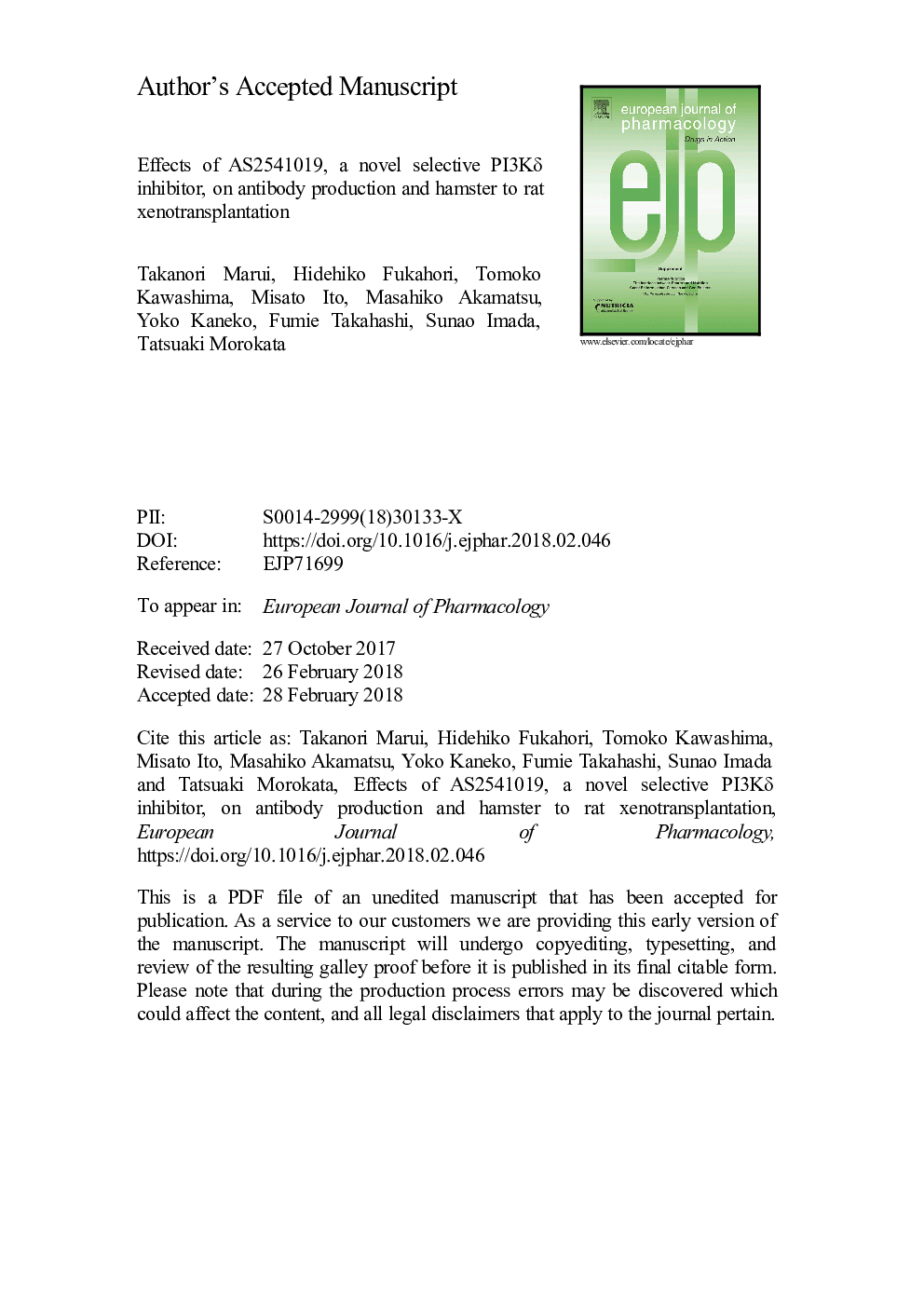| Article ID | Journal | Published Year | Pages | File Type |
|---|---|---|---|---|
| 8529179 | European Journal of Pharmacology | 2018 | 38 Pages |
Abstract
B cell-mediated antibodies play a critical role in protecting the body from infections; however, excessive antibody production is involved in the pathogenesis of autoimmune diseases and transplanted organ rejection. Regulation of antibody production is therefore crucial for overcoming these complications. Phosphatidylinositol-3-kinase p110δ (PI3Kδ), a member of the family of PI3K lipid kinases, is a key mediator of B cell activation and proliferation, with a small molecule PI3Kδ inhibitor having been approved for the treatment of B cell lymphoma. However, the effect of PI3Kδ inhibitors on B cell-mediated antibody production has not been clearly elucidated. In this study, we investigated the effect of the selective PI3Kδ inhibitor, AS2541019, on B cell immunity and antibody production. Our results show that AS2541019 effectively prevented B cell activation and proliferation in vitro, and that oral administration of AS2541019 resulted in significant inhibition of both T-dependent and T-independent de novo antibody production in peripheral blood. Further, in a hamster to rat concordant xenotransplant model, AS2541019 significantly prolonged graft survival time by inhibiting xenoreactive antibody production. Therefore, our study demonstrates that the selective PI3Kδ inhibitor AS2541019 inhibits antibody production through potent inhibitory effects on B cell activation, and can protect against organ dysfunction.
Related Topics
Life Sciences
Neuroscience
Cellular and Molecular Neuroscience
Authors
Takanori Marui, Hidehiko Fukahori, Tomoko Kawashima, Misato Ito, Masahiko Akamatsu, Yoko Kaneko, Fumie Takahashi, Sunao Imada, Tatsuaki Morokata,
